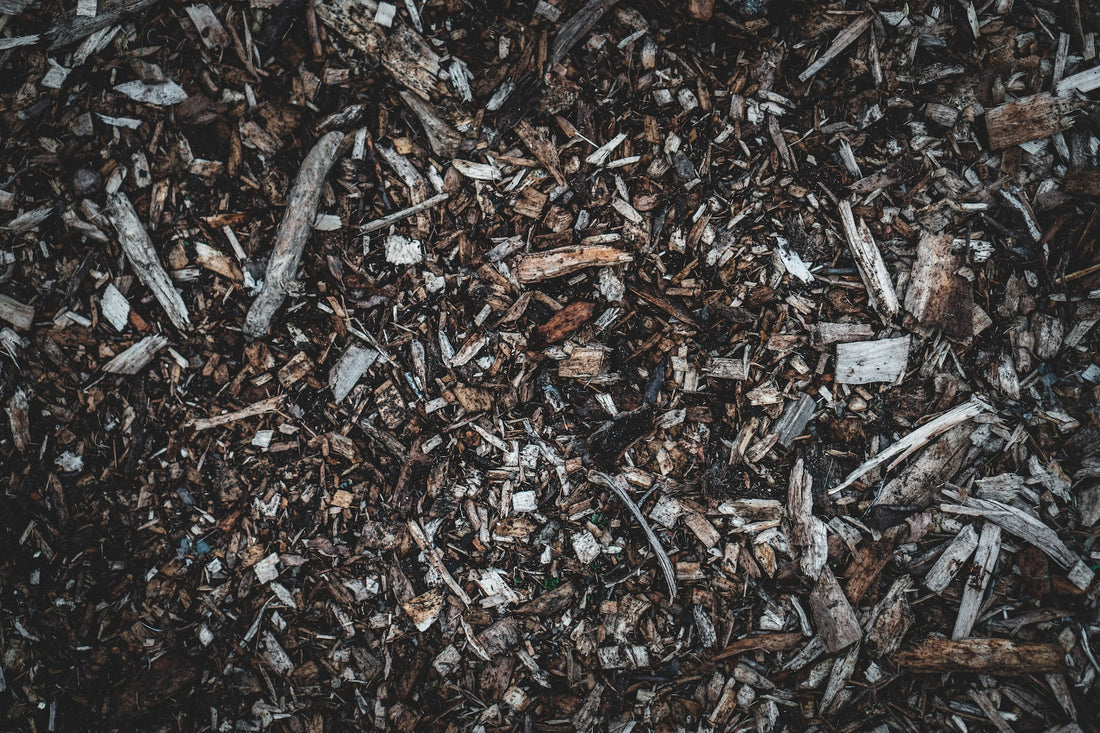There's a lot of conflicting information online about whether wood chips are good to use in the garden or not. Some people say not to use them, while others say it is okay. Where does the truth lie?
As with most things, the answer isn't a clear yes or no; there is truth on both sides, and the key is to do the research to ensure you're using best practices.
The bottom line is that wood chips do affect soil nitrogen levels. However, they only deplete nitrogen close to the soil surface -- the shallow zone. Under the first 4-5 inches of soil, nitrogen levels actually increase after adding a layer of woodchips. The depletion occurs because microorganisms use nitrogen to decompose the wood chips near the soil surface.
So, the truth is that people who say they deplete nitrogen are right, and also folks who say wood chips improve soil are also correct.
The Benefits of Wood Chip Mulch
- Fewer weeds: A layer of wood chips prevents many weeds from reaching the sunlight in order to grow
- Appearances: Wood chip mulch looks attractive. It is uniform and doesn't get compacted by foot traffic or heavy rains.
- Moisture retention: Water doesn't evaporate from the soil as quickly when there is a layer of wood chips. Wood chips also absorb water, so the plants have access to more water even after it stops raining. Using wood chips as mulch reduces watering demands. They are especially invaluable for drought-sensitive plants like Rhododendrons.
- Erosion prevention: Trees and shrubs develop stronger roots when the ground around them is protected. These stronger roots, in turn, create robust landscapes and better soil -- all of this is essential for preventing soil erosion.
- Soil temperature moderation: Wood chips keep the soil cool and moist when it's hot out and warm the ground during cool weather. They provide an automatic temperature regulation system that benefits the plants and the gardener, as it means less work to maintain the garden.
- Reduce pests and pathogens: Some wood types have natural insect repellant properties. Cedar chips, in particular, deter many pests.
- Supplies nutrients: As the wood chips break down, they provide essential nutrients to the soil, like nitrogen, tannin, suberin, and lignin.
Wood Chip Best Practices
Wood chips should only be used in the vegetable garden if there is a good buffer layer between the soil and the wood chips. The reason for this is that most vegetables have shallow roots. This puts their roots directly in the nitrogen-depleted shallow zone at the top of the soil.
A lack of nitrogen will negatively affect the plant's growth. Use grass, layers of newspaper or cardboard, or compost as a buffer, and the soil will thrive.
Annual flower beds and any first-year perennial plants or bushes will also have this issue that vegetables do due to shallow root systems. Perennial plants will be okay with wood chip mulch once they've established their roots.
Wood Chip Precautions
Never use wood chips from an unknown source. They could be from an infected or diseased tree that will then pass on something to your shrubs or trees. This isn't common, but if your tree is already struggling, it could seriously hurt it.The best way to prevent these issues is to let the wood chips age for one or two years outside before using them. Unfortunately, the wood chips will lose nutrients in the aging process, but they still have a lot to give.
Some commercially produced mulches are made up of discarded questionably sourced wood-based products. These wood products are processed and dyed to look natural. Know your company!



